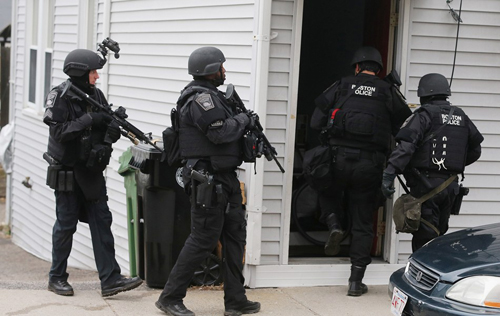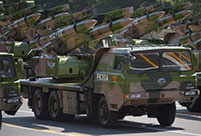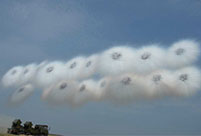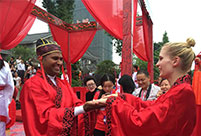

 |
BEIJING, Sept. 11 -- Fourteen years following the U.S. launch of a war on terror in the wake of the Sept. 11 terror attacks on its soil, it seems that Washington is still unable to dispel fears of more terror attacks.
Amid a tidal wave of refugees who are fleeing their war-torn homelands partially for the fear of persecution by the Islamic State (IS) terrorist group, there has been widespread criticism of the U.S. anti-terrorism policy.
On the one hand, the United States has taken an oversimplified and crude way to fight terrorists, launching wars and interfering in the internal affairs of other countries. On the other hand, it always adopts a double-standard anti-terrorism policy, which accords with its national political interests.
Both the Afghanistan war in 2001 and the Iraq war in 2003 reflect the U.S. mentality of "replacing one tyranny by another" and its overconfidence in the reconstruction of the two countries, which has dragged the United States into a political and military quagmire in the Middle East.
For instance, Arturo Munoz, a RAND senior political scientist, believes the United States should have backed then Afghan President Hamid Karzai's efforts to reconcile with the Taliban in December 2001.
"A peace process among the Afghans was being discussed at the time, only to be repudiated by the Americans," he wrote in an essay reviewing U.S. actions since the Sept. 11 attacks.
Today, according to Munoz, America's efforts in Afghanistan might be better pursued by adapting military and civilian efforts to more closely aligning with Afghan norms. This means fewer U.S. troops across the country and more reliance on traditional and tribal forms of governance that stress consensus-building.
Of course, the United States has reaped fruits in its fight against terrorism, such as the significant degradation of al Qaida marked by the death of Osama bin Laden and improved intelligence systems that have helped uncover terrorist plots. But to achieve these results, it has cost Washington a lot in political, economic, military and diplomatic fields.
A U.S. Congressional Research Service report shows the cost of Iraq, Afghanistan, and other global wars on terror operations since Sept. 11 had reached 1.6 trillion U.S. dollars by 2014.
Some of the great cost is unnecessary and the United States is eating bitter fruits it has brewed therein, such as the Iraq war, which actually has no relations with anti-terrorism, and which was stubbornly launched in the selfish interests of the United States.
In 2003, the United States and Britain bypassed the United Nations Security Council and unilaterally launched military strikes against Iraq, claiming that the country was hiding weapons of mass destruction and supported terrorists. Their real motive was actually to topple the anti-U.S. Saddam Hussein regime.
About 162,000 Iraqis lost their lives in the war and several million civilians fled to neighboring Jordan and Syria, contributing indirectly to today's refugee crisis in Europe.
Moreover, the political inefficiency and social instability in post-war Iraq has also provided a hotbed for the rapid growth of extremist groups such as the Islamic State (IS), which later expanded its forces to Syria. But the U.S. strategy of only launching airstrikes and relying on local troops to fight the IS could lead to a prolonged anti-terrorism war.
As the U.S. war on terror lamentably fails to reach its goal, Washington should see that countering terrorism has become a global challenge and no country can tackle it alone. It is high time for the United States to rethink and change its strategy while cooperating and coordinating with other countries in jointly fighting terrorism.
 Models change clothes on street in Hangzhou
Models change clothes on street in Hangzhou Charming iron ladies in China's upcoming V-Day celebrations
Charming iron ladies in China's upcoming V-Day celebrations In pics: armaments displyed in massive military parade
In pics: armaments displyed in massive military parade Charming Chinese female soldiers
Charming Chinese female soldiers Volunteers required not taller than 5ft 5in
Volunteers required not taller than 5ft 5in  Czech pole dancing master teaches in Xi'an
Czech pole dancing master teaches in Xi'an Shocked! PLA smokescreen vehicle drill
Shocked! PLA smokescreen vehicle drill Foreigners experience tranditional Chinese wedding
Foreigners experience tranditional Chinese wedding Blind date with bikini girls in Nanjing
Blind date with bikini girls in Nanjing Living heritage
Living heritage More SOE reforms on the way
More SOE reforms on the way NYT shifts refugee crisis attention to China
NYT shifts refugee crisis attention to China Govt cracks down on editors accepting bribes to delete negative online reports
Govt cracks down on editors accepting bribes to delete negative online reportsDay|Week